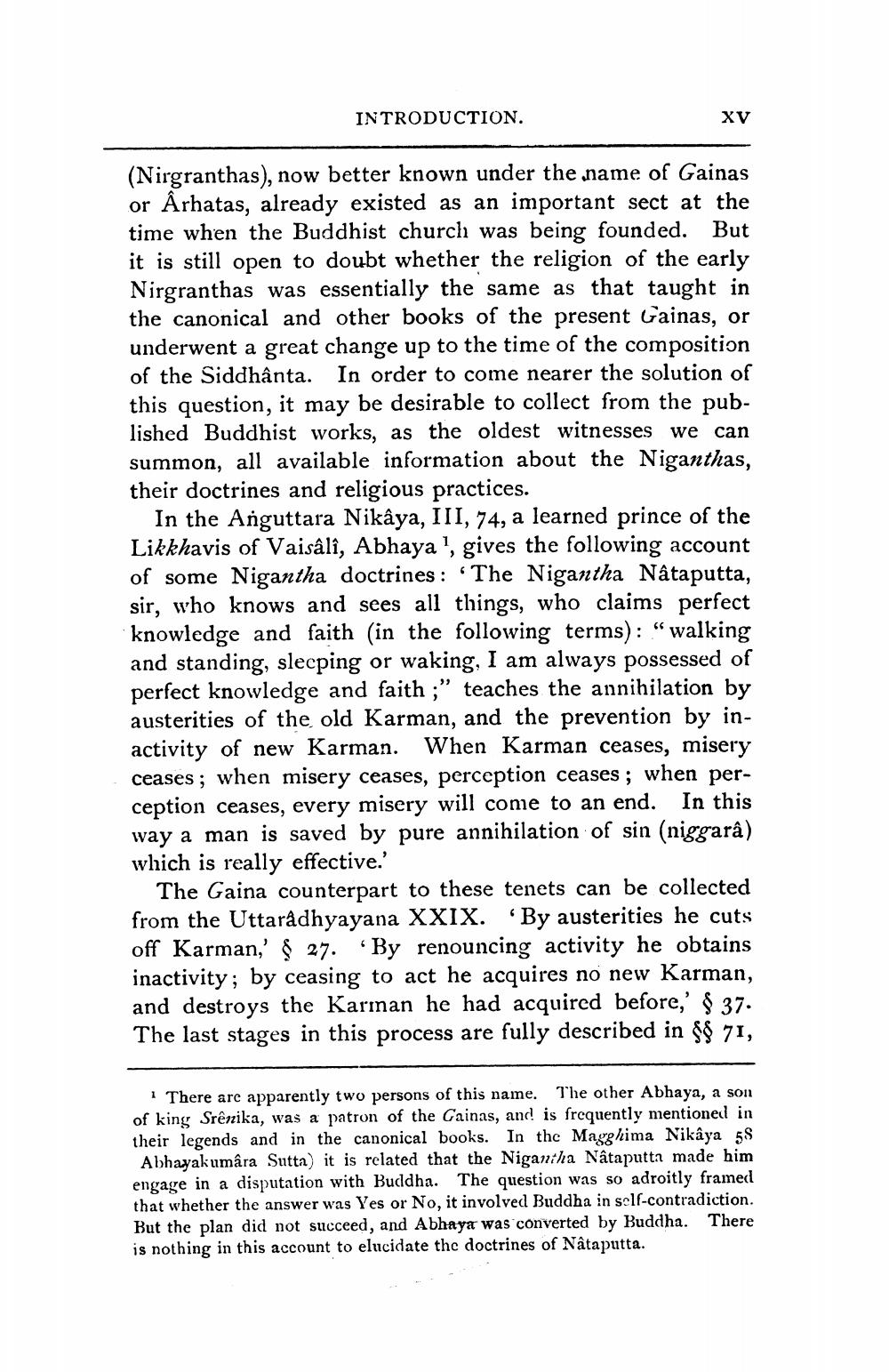________________
INTRODUCTION.
хү
(Nirgranthas), now better known under the name of Gainas or Århatas, already existed as an important sect at the time when the Buddhist church was being founded. But it is still open to doubt whether the religion of the early Nirgranthas was essentially the same as that taught in the canonical and other books of the present Gainas, or underwent a great change up to the time of the composition of the Siddhânta. In order to come nearer the solution of this question, it may be desirable to collect from the published Buddhist works, as the oldest witnesses we can summon, all available information about the Niganthas, their doctrines and religious practices.
In the Anguttara Nikâya, III, 74, a learned prince of the Likkhavis of Vaisâlî, Abhaya”, gives the following account of some Nigantha doctrines : The Nigantha Nâtaputta, sir, who knows and sees all things, who claims perfect knowledge and faith in the following terms): "walking and standing, sleeping or waking, I am always possessed of perfect knowledge and faith ;" teaches the annihilation by austerities of the old Karman, and the prevention by inactivity of new Karman. When Karman ceases, misery ceases; when misery ceases, perception ceases; when perception ceases, every misery will come to an end. In this way a man is saved by pure annihilation of sin (niggara) which is really effective.
The Gaina counterpart to these tenets can be collected from the Uttaradhyayana XXIX. 'By austerities he cuts off Karman,' 27. 'By renouncing activity he obtains inactivity; by ceasing to act he acquires no new Karman, and destroys the Karinan he had acquired before,' $ 37. The last stages in this process are fully described in $$ 71,
1 There are apparently two persons of this name. The other Abhaya, a son of king Srênika, was a patron of the Gainas, and is frequently mentioned in their legends and in the canonical books. In the Magghima Nikâya 59
Abhayakumâra Sutta) it is related that the Nigantha Nâtaputta made him engage in a disputation with Buddha. The question was so adroitly framed that whether the answer was Yes or No, it involved Buddha in self-contradiction. But the plan did not succeed, and Abhaya was converted by Buddha. There is nothing in this account to elucidate the doctrines of Nâtaputta.




